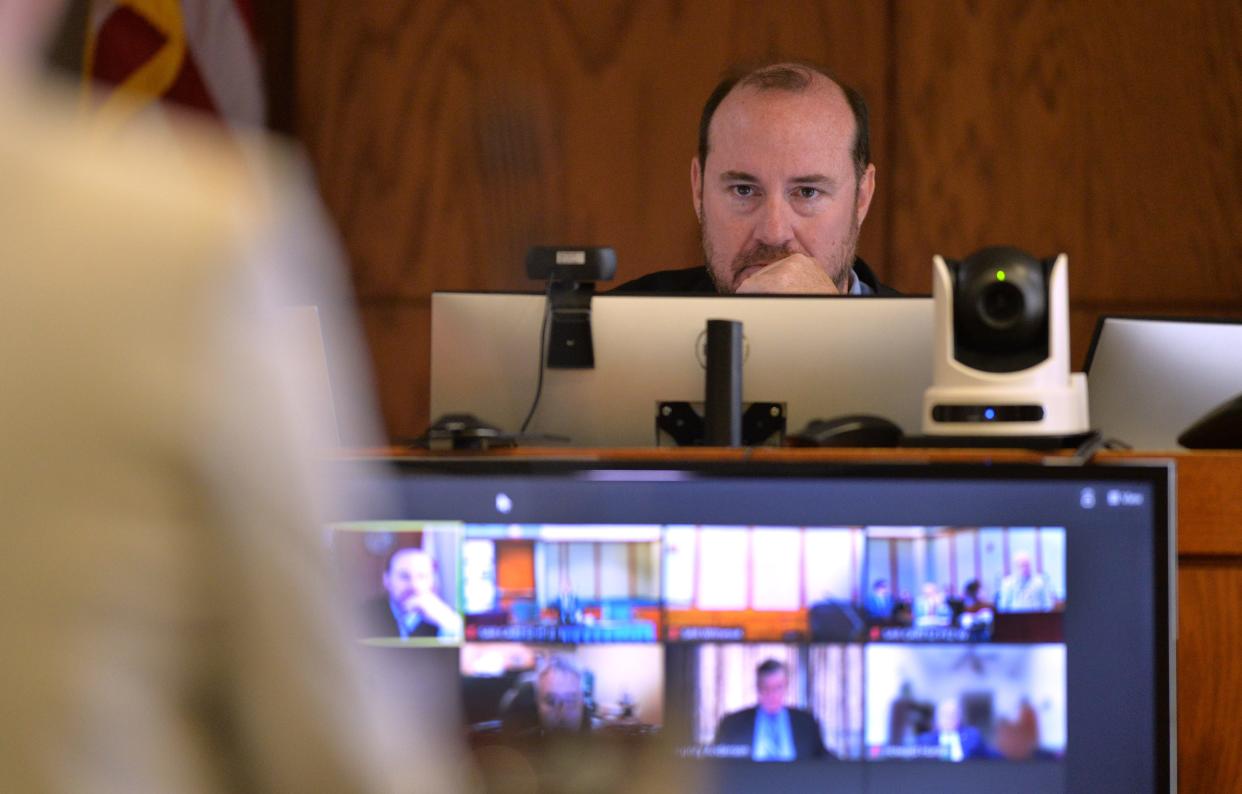What's happening in 'Take Care of Maya' case? Hearing sets parameters for jury selection

Attorneys for the Kowalski family, Johns Hopkins All Children’s Hospital and social worker Catherine Bedy met in court Wednesday to discuss preparations for the upcoming September trial, including setting parameters for jury selection.
The civil case between the Venice family and the St. Petersburg hospital has captured national media attention following the June premiere of the Netflix film “Take Care of Maya.” The film focuses on the Kowalski family's story as it peels back Florida’s child healthcare and welfare system.
The Kowalski family sued Johns Hopkins All Children’s Hospital, Bedy, and others involved in the case in October 2018, more than a year after Beata Kowalski took her life after being separated from her daughter, Maya, due to child abuse allegations.
Previous reporting: Doctor's suspicion tears apart Venice family
Keep reading: Torn apart
The family took 10-year-old Maya Kowalski to the hospital in October 2016 following a relapse of her Chronic Regional Pain Syndrome, a disorder that impairs the central nervous system and heightens pain sensations. While at the hospital, an abuse report was submitted against Beata and Jack Kowalski. Maya Kowalski was then placed under protective custody, beginning a three-month effort by her parents to bring their daughter home.
Given the recent spike in public attention, the defense filed a motion to address jury selection asking the court to disqualify prospective jurors if they've seen the film, arguing they have been exposed to "prejudicial, inaccurate and one-sided information," according to the motion.
In a jury questionnaire, at least four of the 16 questions ask about the Netflix film and media coverage.
During Wednesday’s four-hour hearing, Sarasota Circuit Judge Hunter Carroll said both sides will have the opportunity to question jurors individually as they see fit if a potential juror has seen the film, with each side allowed nine peremptory challenges when questioning trial jurors and six for alternatives. A peremptory challenge is an objection made by either side without having to give a reason and could lead to the dismissal of a potential juror.
The trial is also expected to last six-to-eight weeks beginning in September 2023. Jury selection is scheduled to start Sept. 14.
An order in the case also limits the release of juror information for their safety after attorneys for the defendants reported they had received threats and harassment after the movie premiered. Jurors will only be identified by a number throughout the trial.
In other court news: Jury finds Sarasota man, 20, guilty of murder, attempted murder in 2019 shooting
Trailblazing attorney: Sarasota lawyer first to be elected as Florida Bar president
Other motions granted, denied or taken under advisement during hearing
Carroll granted a motion assigning him to watch the Netflix film, "Take Care of Maya," filed by the defense for Johns Hopkins and supported by the Kowalskis' attorney.
Carroll denied one of the plaintiff's motions to prohibit the defense from alluding to a criminal prosecution of Beata and/or Jack Kowalski. The defense argued that there was an investigation conducted by the Sarasota County Sheriff's Office and that what came from the investigation needs to be heard at trial. The defense agreed that the Kowalskis were not criminally prosecuted.
Carroll also denied a motion by the defense asking the court to prevent the Kowalskis' counsel from presenting testimony or argument at trial concerning Beata Kowalski's death by suicide, including the 911 call, the autopsy report, photographs from the scene and audio interviews from investigators.
Patricia Crauwels, who represents Bedy, said there was no dispute that Beata Kowalski committed suicide, and in the motion, she states that the "evidence is obviously calculated to inflame the emotions of the jury."
Gregory Anderson, representing the Kowalskis, said he doesn't intend to show autopsy photos, but rather photos from the scene, the 911 call, and recordings from the investigation as it shows the emotional distress his clients have experienced.
One motion Carroll indicated he would take under advisement was a motion by the Kowalskis asking the court to prohibit the defense from commenting or arguing that Beata Kowalski had a mental illness at the time she was accused of abusing Maya.
Anderson said the defense doesn't have anyone to testify that Beata Kowalski had a mental illness prior to the "incredible stress that was put on her" due to her daughter's diagnosis and the situation with the hospital.
The defense argued that they know Beata Kowalski was being treated for anxiety and depression before the conflict with the hospital and that they should be able to discuss this at trial as it goes into her state of mind.
Gabriela Szymanowska covers the legal system for the Herald-Tribune in partnership with Report for America. You can support her work with a tax-deductible donation to Report for America. Contact Gabriela Szymanowska at gszymanowska@gannett.com, or on Twitter.
This article originally appeared on Sarasota Herald-Tribune: Hearing in Kowalski v Johns Hopkins Hospital case sets jury parameters

